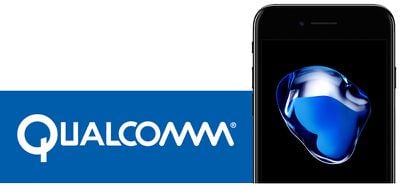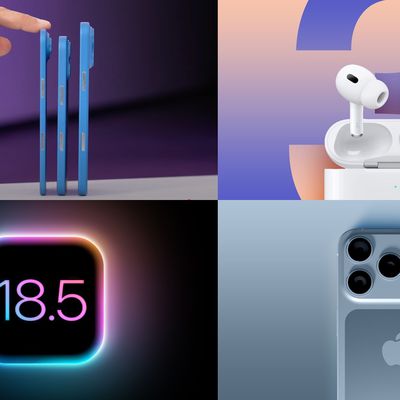Around 29 million Britons who own an Apple or Samsung phone could be entitled to a collective £480m payout if a landmark legal claim against U.S. chipmaker Qualcomm is successful.

Consumer watchdog Which? is suing the chipmaker for allegedly breaching U.K. competition law by taking advantage of its dominance in the patent licensing and chip markets.
As reported by the BBC, Which? alleges that Qualcomm charged Apple and Samsung inflated fees that were then passed on to consumers in the form of higher smartphone prices.
Which? is seeking up to £30 each in damages for about 29 million people in the U.K. who own Apple or Samsung smartphones that have been purchased since October 1, 2015. For Apple smartphone owners, that would include iPhone 6s and 6s Plus and newer devices. The watchdog has filed its legal claim with the Competition Appeal Tribunal, which will ultimately decide if it can go ahead.
"We believe Qualcomm's practices are anti-competitive and have so far taken around £480m from consumers' pockets," said Anabel Hoult, CEO of Which? "This needs to stop. We are sending a clear warning that if companies like Qualcomm indulge in manipulative practices which harm consumers, Which? is prepared to take action."
Responding to the case, Qualcomm said it had "no basis."
"As the plaintiffs are well aware, their claims were effectively put to rest last summer by a unanimous panel of judges at the Ninth Circuit Court of Appeals in the United States," a spokesman told the BBC.
This is by no means the first time that Qualcomm has been accused of anticompetitive behavior. In 2018, Qualcomm was hit with a 997 million euro ($1.2 billion) fine by EU antitrust regulators for paying Apple to use its LTE chips in iOS devices.
According to the European Commission's investigation, the payments to Apple occurred from 2011 to 2016, and were made with the sole aim of blocking Qualcomm's LTE chipset market rivals, such as Intel.
In 2019, an antitrust lawsuit, brought against Qualcomm by the Federal Trade Commission, concluded that Qualcomm's "no license, no chips" model that allowed it to refuse to provide chips to companies without a patent license, violated federal antitrust laws, and required Qualcomm to renegotiate all of its licensing terms with customers in good faith.
However, in August 2020, Qualcomm won an appeal that prevented the San Diego company from having to renegotiate its licensing agreements with smartphone makers.






















